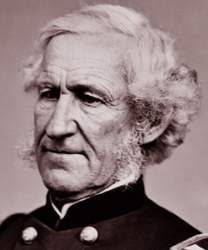Record Data
Transcription
HEAD-QUARTERS, DEPARTMENT OF FLORIDA,
FORT PICKENS, NOV. 25, 1861.
GENERAL: The bombardment of the 22d and 23d has elicited some facts that are of importance, and I notice them that we may in future benefit by them.
First — That with the most efficient guns of the largest calibre and served in the best manner, no serious injury can be done to stone or brick walls, or to guns in sand batteries, or to troops serving them, unless probably by rifled guns, if properly protected, at a distance of from two thousand to three thousand yards.
Second — That shells and hot shot are not to be depended on for firing even wooden buildings, unless having in them incendiary composition.
Third — That pieces of port fire are nearly useless as such incendiary composition.
Fourth — That brick buildings covered with slate cannot be fired by either hot shot or shells at the distance named, unless by accident, unless the shells have rock-fires.
Fifth — That the trouble and expense incurred in protecting forts by sand-bag traverses, etc., is far more than repaid by the saving of the lives of the defenders.
Sixth — That no dependence is to be placed on James' rifle projectiles, either as it respects accuracy or range. It I had had guns to be depended on, I could have silenced the most of tha enemy's sand-batteries and the guns in Barrancas.
Seventh — That ships with their present armament cannot for an hour contend against rifled guns, and that if our navy is not at once supplied liberally with good rifled guns it will very likely to be disgraced.
Eighth — That on service here, and I believe the remark applies with equal force to every river and harbor in the Gulf, a gunboat drawing six feet water and well armed with good rifled guns can do more and better service than a forty-gun ship, or than such ships as the Niagara and Richmond.
Ninth — That sail vessels are utterly useless in enforcing a blockade.
Tenth — That Parrott's rifled guns are efficient, and that forts should be immediately supplied with them, and with a full supply of ammunition.
I would strongly urge that a dozen of Parrott's thirty-pounders, or, if to be had, of larger calibre, be sent to this post, with a good supply of ammunition, as early as possible. I had one which I found to be excellent, but when the navy met with such a mishap in the Mississippi, I was compelled to let Flag Officer McKean have it, and one of my twelve-pounder Parrott guns, to put on one of his ships to save them from being driven out of the waters by a little steamer having a rifled gun on board.
I am, General, very respectfully, your obedient servant,
HARVEY BROWN,
Colonel Commanding.
Brig. Gen. L. THOMAS,
Adjt.-Gen. U. S. Army, Washington, D. C.


